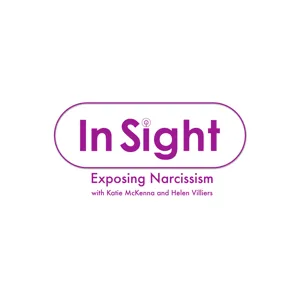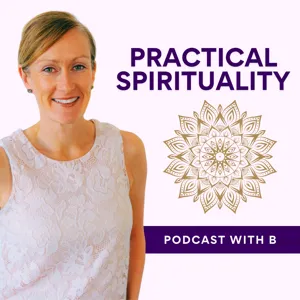Podcast Summary
The importance of rest and self-care: Taking a restful weekend or prioritizing self-care doesn't make one lazy or a bad parent. Rest and self-care are crucial for maintaining energy and being present for loved ones.
Rest is an essential activity that is often overlooked. Katie shared her experience of taking a restful weekend and feeling rejuvenated, despite societal expectations that not serving others makes one lazy. She emphasized that rest is not a sign of weakness, but rather an important part of an active life. The conversation also touched upon the importance of prioritizing self-care, even as parents, and the need to remember that taking care of oneself does not make one a bad parent. Winnicott's idea of secure attachment suggests that meeting emotional needs only 30% of the time is sufficient, and it's important to remember that we don't have to sacrifice ourselves completely to be good parents. Rest and self-care are crucial for maintaining our energy and being present for our loved ones.
Caring for loved ones as a single parent: Prioritize loved ones' needs, ask for help, and build supportive connections to overcome challenges in caring for them, even if it means advocating for their needs and healing from past relationships.
Caring for loved ones, especially when they're sick, can be challenging for single parents. It's essential to prioritize their needs above all else, even if it means asking for help or advocating for them. This might involve canceling appointments, dealing with difficult situations, and overcoming past fears of burdening others. The speaker shared an example of her experience, where she had to advocate for her autistic daughter's needs, which involved calling the doctor to request a different medication due to her daughter's sensory issues. This situation allowed her to realize her growth and strength in asking for help and building connections. Healing from unhealthy relationships, especially those with narcissistic parents, can be challenging, but asking for help and forming supportive connections are crucial steps towards healing and growth.
Flexibility and Understanding in Relationships: Be open to new communication styles and ask for help without fear, fostering growth and healing in relationships.
Being in a relationship, whether romantic or platonic, that allows for flexibility and understanding, rather than rigid adherence to rules, can lead to healing and growth. This means being able to ask for help without fear of judgment or manipulation, and being open to new perspectives and solutions. However, it's important to be mindful of the communication styles we're attracted to, as people tend to flock together with similar styles. Healthy relationships require conflict resolution, and avoiding confrontation can lead to resentment and the end of relationships. Changing communication styles and demanding more authenticity in relationships can be a challenging process, but it's necessary for creating space for healthy relationships to thrive. Remember, birds of a feather flock together, and communication styles stick together, so be open to new ways of communicating and engaging with others.
Knowing when to stop communicating in a relationship is important: Recognize when a relationship has reached its end, forgive past hurts, set boundaries in complicated family dynamics, and make conscious choices for future healing and growth.
Healthy communication is crucial in relationships, but knowing when to stop communicating is equally important. If one person consistently refuses to understand or acknowledges the other's perspective, it may be a sign that the relationship has reached its end. Forgiveness can be challenging, especially when it comes to past experiences of abuse or neglect. However, recognizing that both parties need to want the relationship to work for it to be healthy is essential. In the case of complicated family dynamics, such as dealing with an enabling parent or a narcissistic family member, it may be necessary to set boundaries and prioritize self-care over maintaining a toxic relationship. Ultimately, healing and growth require acknowledging the past, understanding the present, and making conscious choices for the future.
Family relationships and past hurts: Acknowledging and addressing past hurts in family relationships is important for mental health and potential reconciliations.
Family dynamics can be complex and fraught with emotional complexities. The speaker shares an experience of being estranged from some family members due to their mother's choices, and now observes her mother reconnecting with them. The speaker expresses feelings of confusion, anger, and sadness about the situation, as well as a sense of responsibility towards their mother and siblings. The speaker also reflects on past experiences of feeling unsupported and shamed by their parents, particularly their mother, and the impact of these experiences on their mental health. The speaker's narrative highlights the importance of acknowledging and addressing past hurts, as well as the potential for unexpected changes and reconciliations in family relationships.
Speaker's upbringing in toxic family impacts mental health: Speaker grapples with complex feelings towards mother's controlling behavior, potentially linked to narcissistic personality disorder. Focus on the healing process by setting boundaries, seeking support, practicing self-compassion, and considering therapy.
The speaker's upbringing in a toxic family environment, marked by strict control and unmet emotional needs, has significantly impacted her mental health and self-identity. Her mother's behavior, shaped by her own experiences and expectations, has left the speaker feeling confused, anxious, and angry. The speaker's feelings towards her mother are complex, as she grapples with feelings of love, sympathy, and anger. The speaker's description of her mother's behavior aligns with several traits of narcissistic personality disorder, including a lack of accountability, a need for control, and a disregard for others' feelings. However, it's important to note that a diagnosis requires meeting specific criteria and should be made by a mental health professional. Moving forward, the speaker can focus on healing by setting healthy boundaries, seeking support from trusted individuals, and practicing self-compassion. It may also be helpful for the speaker to explore therapy to further understand her experiences and develop coping strategies. It's also important for the speaker to acknowledge the complexity of her feelings towards her mother and to consider the possibility that her mother may have also been a victim of her father's narcissism. This understanding can help the speaker approach the situation with more empathy and compassion.
Identifying Narcissistic Behavior: Grandiosity, Entitlement, Exploitation, Impaired Self-Awareness, and Impaired Motivational Empathy: Recognize narcissistic behavior by traits such as grandiosity, entitlement, exploitation, impaired self-awareness, and impaired motivational empathy. Narcissistic individuals may refuse accountability, abandon relationships, and lack empathy.
Narcissistic behavior, as exhibited in the discussed situation, can be identified by traits such as grandiosity, entitlement, exploitation, impaired self-awareness, and impaired motivational empathy. Grandiosity, or a sense of self-importance and superiority, can manifest in dictating family relationships and insisting on maintaining a certain public image. Narcissistic individuals may also refuse to take responsibility for their actions and the impact they have on others, which was evident in the listener's experience. Furthermore, they may abandon or reject those who do not meet their unspoken expectations, leading to emotional abandonment and discard. It is essential to recognize and validate the anger and hurt caused by such behavior, and to understand that narcissistic individuals often have impaired self-awareness, which prevents them from reflecting on their actions and taking accountability.
Communication and support during uncertainty: Open conversations and reassurance foster healthy development, while narcissistic behavior harms it. Recognize and challenge unhealthy narratives to create a supportive environment for children's growth and exploration.
Effective communication and support are crucial during times of uncertainty and decision-making in a child's life. Parents should engage in open conversations and provide reassurance, rather than abandoning them and imposing rigid expectations. The narcissistic parent's behavior, characterized by grandiosity, superiority, and a focus on image, can harm their child's development and self-confidence. It's essential to recognize and challenge the narratives and expectations set from our own childhoods to avoid projecting them onto our children and breaking the cycle. In the end, it's not about the number of GCSEs or college degrees; it's about fostering a supportive environment where children can grow and explore their passions.
Avoid imposing societal expectations on children: Recognize and challenge entitlement, allow children autonomy in education and relationships, and avoid creating harmful roles like scapegoat, golden child, or invisible child.
It's essential to avoid imposing societal expectations and conditioning unnecessary narratives on children, allowing them to make their own choices and autonomy in areas like education and relationships. This discussion also highlighted the importance of recognizing and challenging the entitlement and impaired self-awareness that can lead to unfair labeling and the creation of roles like the scapegoat, golden child, or invisible child within families. These dynamics can cause significant harm and hinder healthy emotional development, particularly in childhood and early adulthood.
Emotional manipulation through fear, obligation, and guilt: Fear, obligation, and guilt can cloud judgment and lead individuals to make decisions based on maintaining control and avoiding consequences, rather than out of respect. It's essential to recognize manipulative behaviors and understand that respect is not synonymous with fear or compliance.
Fear, obligation, and guilt can manipulate individuals into making decisions based on maintaining control and avoiding potential consequences, rather than out of respect. This dynamic was exemplified in a listener's relationship with her narcissistic mother, who demanded control over important relationships and the spreading of her grandfather's ashes. The listener, out of fear, obligation, and guilt, complied with her mother's demands, leading to regret and missed opportunities. It's essential to recognize that these emotions can cloud judgment and that individuals, especially younger ones, are not always fully aware of manipulative behaviors. Ultimately, it's crucial to understand that respect is not synonymous with fear or compliance, and individuals have the right to make their own decisions without the fear of punishment or abandonment.
Narcissistic Parent-Child Dynamics: Lifelong Search for Approval and Exploitation: Recognize signs of exploitation, have open conversations about boundaries and expectations, and understand complex narcissistic dynamics to maintain healthy relationships.
The dynamic between a child and a potentially narcissistic parent can lead to a lifelong search for approval and an eventual exploitation in adulthood. The parent, in this case the mother, may use manipulation, emotional support, and even the death of a spouse as an excuse to regain control and dependency on their children. It's important for adults in such situations to recognize the signs of exploitation and consider having open and honest conversations about boundaries and expectations. Additionally, it's possible that both parents may exhibit narcissistic traits, with one being overtly narcissistic and the other covertly narcissistic, making the situation even more complex. It's crucial to understand these dynamics and take steps to protect oneself and maintain healthy relationships.
Mother's covert narcissistic behavior towards her daughter: The mother's dismissive and angry response to her daughter's self-harm and depression, along with signs of entitlement, superiority, and impaired self-awareness, can be characterized as covert narcissistic behavior. Despite the listener's desire for reconciliation, the mother's abusive behaviors are likely to resurface.
The dynamic between the listener and her mother may be characterized as covert narcissistic behavior, with the mother showing signs of entitlement, superiority, impaired self-awareness, and abuse towards the listener. This is different from an enabling parent, who would typically validate and support their child when they are apart from the abusive parent. The mother's behavior towards the listener's self-harm and depression was dismissive and angry, and she minimized the listener's feelings and experiences. The mother's empathy may have been weaponized against the listener, leading the listener to feel a dissonance and a desire for reconciliation. However, the listener's grief and the belief that "life is short" may lead to a desire to let bygones be bygones, but the mother's abusive behaviors are likely to resurface.
Family dynamics and complex roles: Unhealthy family dynamics can lead to roles like scapegoat or golden child, involving enablers, flying monkeys, and people pleasers. Be cautious with info sharing and recognize potential for triangulation and manipulation. Shifts in roles can bring new challenges and feelings.
Unhealthy family dynamics, such as those involving narcissistic parents, can lead to complex roles like scapegoat or golden child. These dynamics can involve enablers, flying monkeys, and people pleasers, and can result in confusion and validation for those caught in the middle. It's important to be cautious with information sharing and to recognize the potential for triangulation and manipulation. Additionally, a shift in roles, such as from scapegoat to golden child, can bring new challenges and feelings of confusion and sadness. It's crucial to remember that even when a parent appears to be behaving better, it doesn't necessarily mean they are meeting the child's needs or acting in a healthy way. Staying aware of these dynamics and feelings is key to navigating these complex situations.
Respect doesn't mean silence or obedience: True respect allows for disagreement and healthy argument, while toxic relationships silence or demand silence.
Respect in relationships should not equate to silence or obedience. Authoritarian behavior, which can manifest as strictness or silencing, is not respect but rather fear, obligation, and guilt. True respect involves disagreeing and arguing respectfully without being personal. Healthy relationships value respect, honesty, and treating each other as humans while allowing for differing opinions. Silencing or demanding silence in a relationship is toxic and unhealthy. It's essential to recognize and challenge controlling behaviors, rather than falling into a shame spiral and feeling obligated to comply. Ultimately, respectful communication and valuing each other's voices are crucial for building and maintaining healthy relationships.
Narcissistic parents use fear and threats to control children: Narcissistic parents' manipulative behavior erodes children's confidence and suppresses their anger, leading to a lifelong struggle to express healthy emotions and assert boundaries.
Narcissistic parents, unlike those who make mistakes, intentionally use fear and threats to control and manipulate their children, eroding their confidence and suppressing their anger. This pattern of behavior creates a deep sense of fear and injustice, making it difficult for the child to challenge or disagree with the parent. The child may grow up feeling powerless and without agency, leading to a lifelong struggle to express healthy anger and assert boundaries. The entitlement of the narcissistic parent can also weaponize the empathy of external family members, leading to confusion and frustration when they appear to welcome the parent back despite past harmful actions. It's essential to recognize the toxic behavior of the narcissistic parent and not fall into the role of enabling or gray rocking, even if interactions with them are brief. The anger and frustration felt towards the parent's manipulation and the unfairness of the situation are valid emotions to acknowledge and process.
Acknowledging and validating feelings towards mom is crucial for healing: Validating anger and setting boundaries through the tango metaphor, reparenting yourself, owning your 'no', seeking therapy, prioritizing self-care, and maintaining a relationship with empathy are essential steps towards healing from a toxic mom relationship.
Acknowledging and validating your feelings towards your mom, including anger and the desire for love and approval, is an essential part of the healing process. The tango metaphor can help protect you by allowing you to set boundaries and assert your needs, which can lead to healthier relationships. Reparenting yourself involves standing up for yourself and validating your anger, just as you would for your own children. Owning your "no" and seeking therapy can further help untangle complex emotions and provide an unbiased perspective. It's essential to prioritize your self-care and empathy towards yourself, as you've been through significant challenges. While it may be difficult, maintaining a relationship with your mom after acknowledging her toxic behavior might be challenging, but it's crucial to remember that your feelings are valid and taking care of yourself is the best way forward.
Setting healthy boundaries for yourself and your children: Setting boundaries is a loving act that teaches accountability, communication skills, and healthy relationship dynamics. It's important to remain calm and clear in communication, and remember that discomfort and anger are valid emotions but not reasons to abandon boundaries.
Holding boundaries for yourself and your children is a necessary and kind act, even when it's difficult and may lead to discomfort or anger. It's important to remember that this process can help teach accountability, communication skills, and healthy relationship dynamics. Parents should aim to remain calm and clear in their communication, and understand that setting boundaries does not equate to being mean or unkind. Instead, it's an act of love and compassion, as it helps shape the next generation into responsible and respectful individuals. It's essential to remember that discomfort and even anger are valid emotions, but they are not a reason to abandon or abuse boundaries. Instead, parents should remain firm and focused on the long-term benefits of setting healthy boundaries.
Breaking free from self-imposed rules and conditioning: Challenging self-imposed rules and conditioning can lead to personal growth and significant improvements in life
Breaking free from self-imposed rules and conditioned patterns of behavior can lead to significant improvements and wins in life. This was a theme that emerged in the conversation between Helen and Maya, as they discussed their personal experiences and wins for the week. Helen shared how she's been making progress in letting go of the need to follow certain rules or expectations, even if they were self-imposed. Maya, on the other hand, talked about how she's been focusing on making small changes, or "micros," that can lead to larger, more impactful changes, or "macros." Both women emphasized the importance of recognizing that there are no absolute rules, and that it's essential to challenge and question the conditioning that holds us back. By doing so, they've been able to make meaningful progress and experience personal growth. This conversation underscores the idea that small, intentional actions can lead to significant change, and that breaking free from self-imposed rules and conditioning can be a powerful catalyst for growth.





